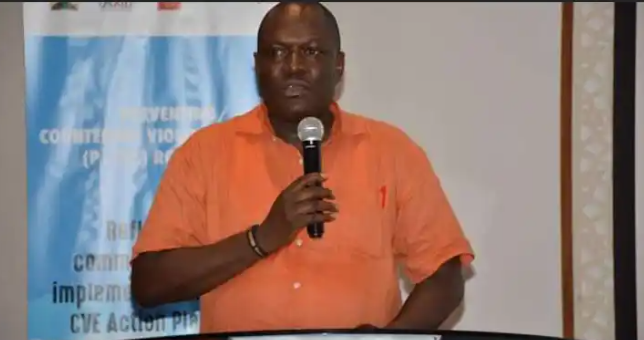The senior National Intelligence Service (NIS) officer who was found dead in his Kilimani home in Nairobi County has been confirmed to have died from a single head injury caused by a bullet.
This revelation came following an autopsy conducted today, which conclusively determined that the wound was self-inflicted, confirming that 54-year-old Tom Mboya Adala died by suicide.
Dr. Johansen Oduor, the chief government pathologist, performed the autopsy at Lee Funeral Home, shedding light on the circumstances surrounding the untimely death of the esteemed NIS Assistant Director. Adala, who had dedicated his career to serving his country in the intelligence sector, was residing at Kirichwa Villas in Kilimani estate at the time of his death. He shared the home with his nephew, Francis Oduor.
According to Francis Oduor, the last interaction with his uncle occurred on the evening of Monday, June 3.
He recounted that Adala retired to his room upstairs as usual.
However, the following morning, there was an unsettling absence of the NIS officer.
Despite the arrival of the day house help, Caroline Amanda, who had already prepared breakfast, Adala was nowhere to be found.
Francis, growing concerned, decided to check on him upstairs.
Adala was not in his bedroom, sparking immediate concern and subsequent investigations.
The scenario pointed towards a deeper underlying issue that had been troubling the senior officer.
Preliminary investigations revealed that Adala had been grappling with depression for some time.
This insight into his mental health struggles provides a poignant context to the tragic event, highlighting the often unseen battles faced by even the most dedicated and seemingly resilient individuals.
The confirmation of suicide has sent disbelief through the community and among his colleagues in the National Intelligence Service.
Adala was known for his professionalism, dedication, and significant contributions to national security.
His passing under such circumstances underscores the critical importance of mental health awareness and support, particularly in high-stress professions such as intelligence and national security.
Dr. Johansen Oduor’s findings provide a clear conclusion to the cause of death, but they also open up a broader dialogue about the mental health challenges faced by many in high-pressure roles.
The NIS and related agencies are expected to re-evaluate their support systems and mental health resources to better assist their personnel in coping with the stresses associated with their duties.
Tom Mboya Adala’s death is a stark reminder of the silent struggles that individuals may endure and the imperative need for comprehensive mental health care and support.
As the nation mourns the loss of a dedicated public servant, it also faces the challenge of addressing the mental health needs of those who serve tirelessly to protect it.





















Add Comment